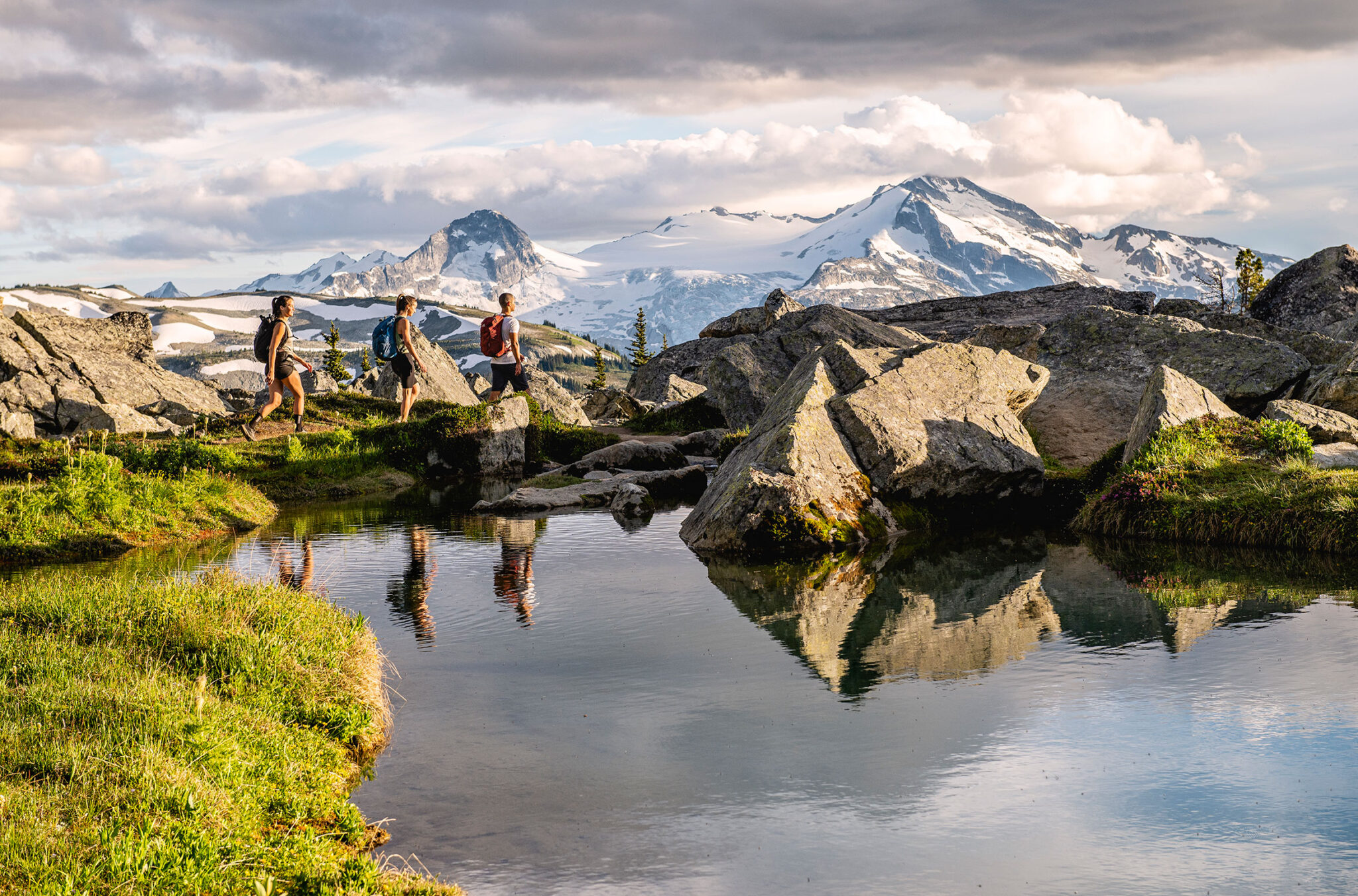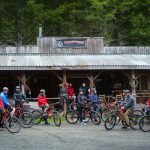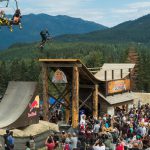Updated April 2023
Etiquette is a funny thing. It’s hard to learn from a book (or a blog) because there are subtleties of context that really only come from real-world experience and time spent with a mentor (ie: your grandma continuously reminding you to “keep your elbows off the table, honey.”)
While different regions will have different customs and codes of conduct, there are a pretty definitive set of guidelines for how to behave in the backcountry which have evolved both for the safety of everyone out there and the protection of the environment itself. Popular hiking and biking trails in the Coast Mountains will see thousands of people each summer so what might seem like an inconsequential action can quickly become a problem when scaled up.
With that in mind, The Whistler Insider presents a list of easy-to-follow Backcountry Etiquette Tips. It’s all about playing by a few simple rules, showing a healthy dose of respect for both people and the place you came to see and enjoying the freedom of the outdoors.
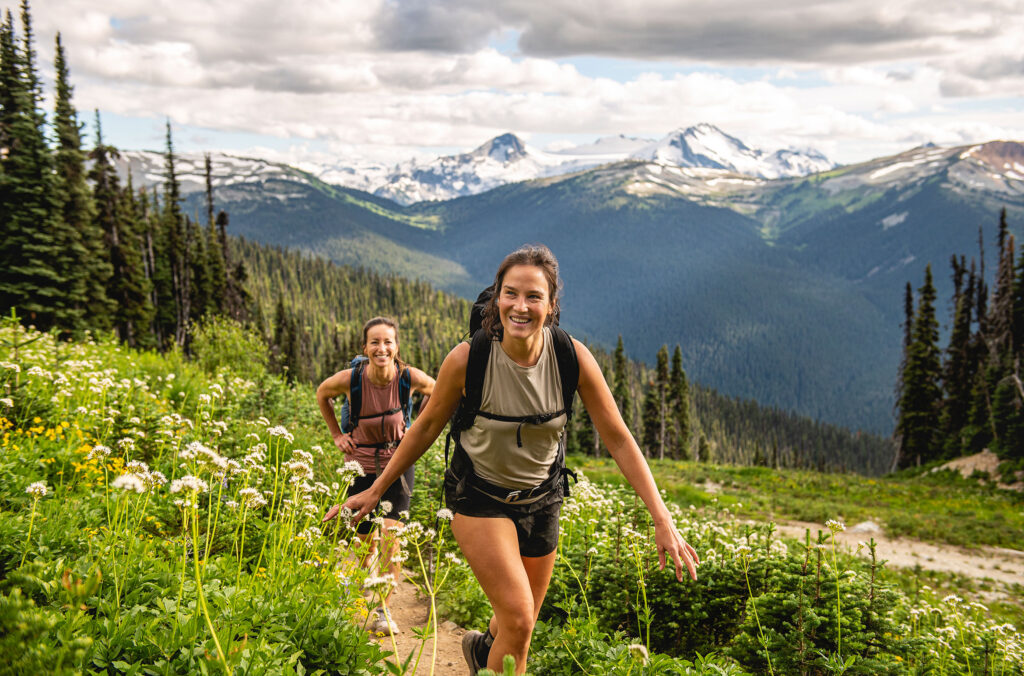
Leave Nothing Behind
If you pack something into the backcountry, you should also pack it out. Many believe it’s ok to leave food scraps because, “It’s organic and totally compostable, man.” Wrong. Besides the fact that food attracts bears, many things will not decompose as expected, especially in the alpine. Orange peels left at high elevations will still be there next spring.
Leaving nothing behind also means not damaging fragile ecosystems, if there is a trail stick to it.
For more information visit Leave No Trace Canada.
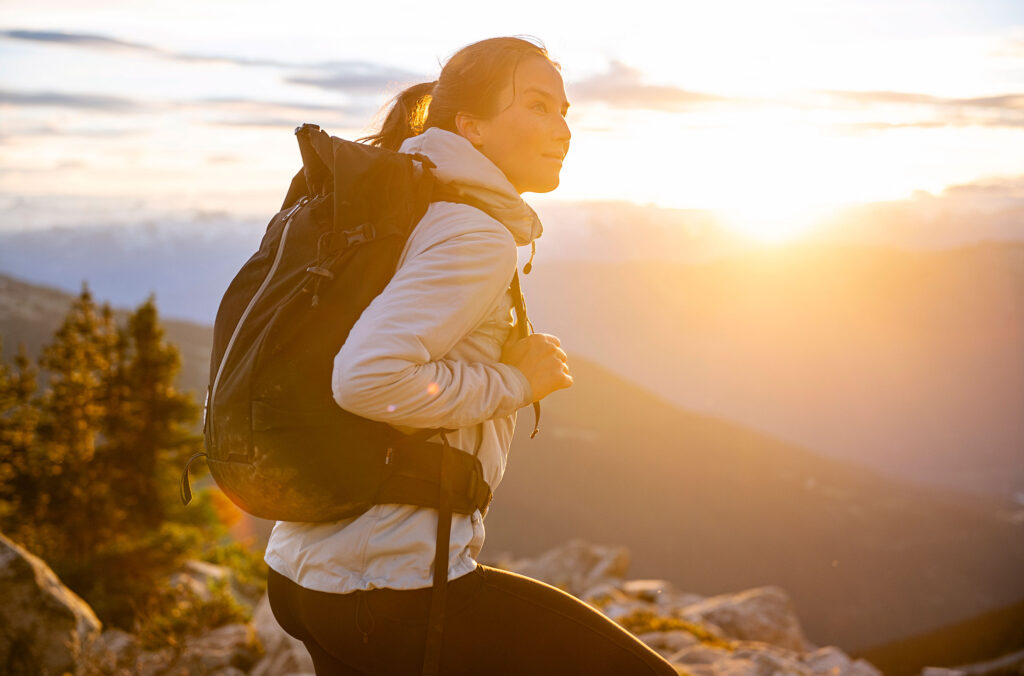
Leave it Better than you Found It
This is a continuation of the last tip, and it’s especially useful if you are camping or hiking at a popular spot. Often, less conscientious parties will have forgotten something behind, a piece of foil, a wrapper, an orange peel… Legit backcountry enthusiasts will always have an easily accessible garbage bag on hand (a large ziplock works great) to help keep the backcountry pristine. (Sadly, there is no team of twinkling Scandinavian mountain gnomes that scurry out at night to clean up the alpine. It’s on us.)
Take Only Pictures
It’s against the law to remove anything at all from a Provincial Park (so put that dinosaur leg bone back sonny!) but this ideology should enter your mind in any pristine wilderness environment. That nice rock or cool knotted stick is amazing, yes, but chances are after you lug it home and put it on the mantle your wife/husband/parents will nix the idea anyhow. Cherish the outdoors outdoors, and leave things as you found them.
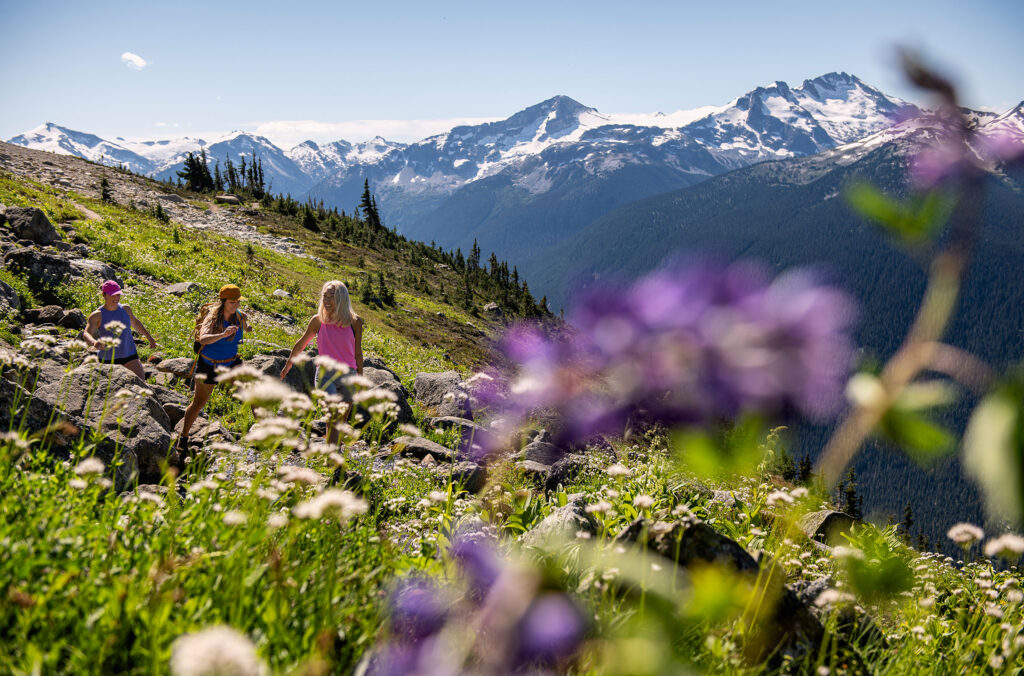
Be Mindful of Current Conditions
Here in British Columbia, we’re not afraid to go adventuring when it is hot, cold, dry or wet. However, travelling in the backcountry under less-than-Instagram-perfect conditions comes with different responsibilities. Has it been raining for a week? Best to leave the alpine biking trails alone, as riding in wet conditions can damage the trails.
Wildfires are a real danger in Whistler and you should know the current fire danger rating. Take particular care to extinguish (and remove) cigarette butts and be respectful of campfire bans – forest fires are no joke, and it only takes one spark in the right conditions. High avalanche danger? Might not be the best time to bag that steep line you’ve been dreaming of. Trust us, the mountains will be there another day.
Smile & Be Civil
Hiking, biking and general outdoors-ing are more popular than ever so you will likely see other people out on the trails. Sure, many of us head into the hills for some peace and solitude but there are plenty of views and moments for everyone to enjoy so just smile, be pleasant to each other, and go about your merry way.
Remember, this is a mountain environment where the weather can move in quickly and a casual stroll can get very un-casual very fast. The biker you pass might have the tube that saves you a long walk home and that family you shared a short conversation with at the viewpoint could be the people who save your life. Act accordingly.
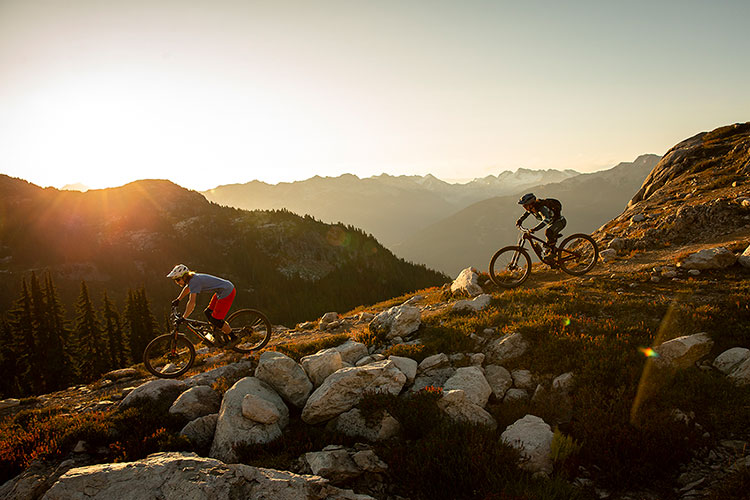
No One Left Behind
If you want to avoid problems the rule for the backcountry is to travel at the pace of your slowest team member. If everyone is together you can help each other if something happens (A sprained ankle is scary when you are behind the pack and all alone.) If someone is moving really slowly, offer to carry part of their load, or split the team into two groups. Leave no one behind.
Trailblazing: Cairns & Inukshuks
Most of the hiking trails in Whistler are really well marked with fluorescent trail blazes (or a super-defined trail) but on less travelled terrain hikers and mountaineers often use the ancient technique of building cairns or Inukshuks (piles of rocks) to mark the correct and safest route of passage.
As such, if you see a pile of rocks, don’t knock it over! Conversely, please refrain from building random Inukshucks in backcountry areas where they are used to mark the trail to keep communication clear.
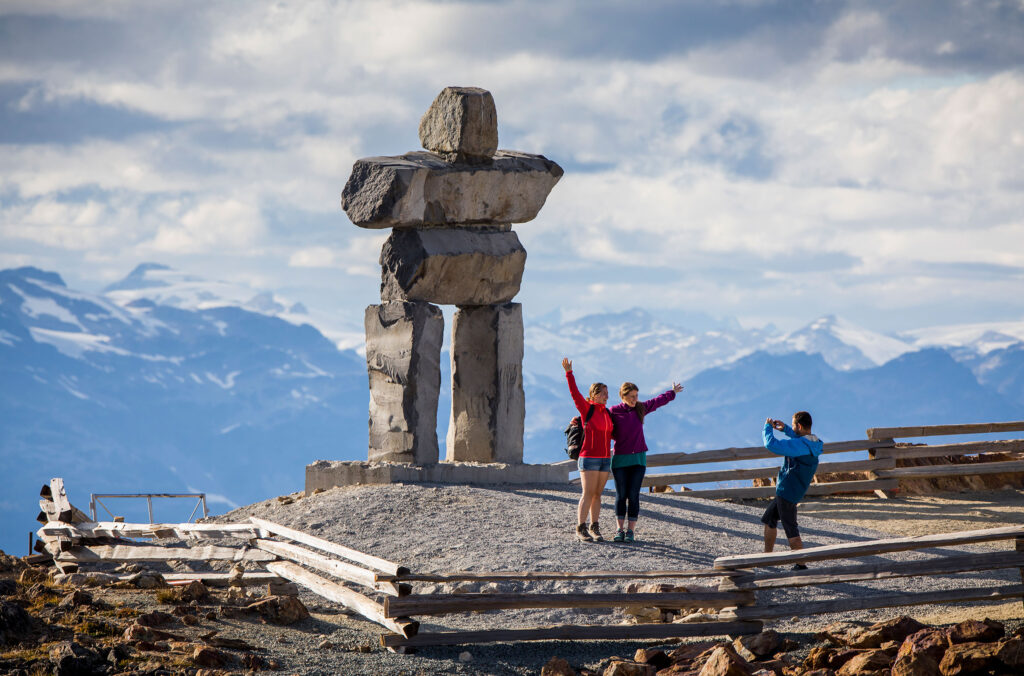
Nature Calls: #1 and #2
It’s part of life: nature calls, even when you are out in nature. And nothing can destroy a beautiful piece of backcountry paradise like a dog “landmine” or numerous piles of toilet paper and poo. But with a bit of common sense, it can all be avoided.
- Dogs aren’t allowed in many areas, research your parks and trails and respect the rules. When they are allowed the owner is going to need some of those little doggie bags to clean up Fido’s mess. Here’s the thing though: DON’T BAG THE POO AND LEAVE THE BAG TRAILSIDE!!!!! Or anywhere; that is actually worse than just leaving a pile of poo. Remember the rule about packing in what you pack out? Do it.
- Humans should do their best to go to the bathroom before they head out on the trail but if it can’t be avoided there are two options – bury your business and pack out the paper in that ziplock bag you are carrying, or bury it all somewhere under as much soil as you can. This way at least the microbes in the earth can do their decomposition magic.
- Urine is not as big of an issue but please be aware that for pretty much every Indigenous culture on the planet (and certainly all in Canada) it is unthinkably disrespectful to urinate in a stream, lake or any sort of water source (it’s also super unsanitary seeing as water runs downhill and downhill from the Whistler alpine might just be where your drinking water comes from).
And Finally….
Hey Hollywood. Turn off the music, and get off your phone. You’ll miss the best part of being out there! We’re incredibly lucky to live and play here – let’s show we know it and take care of the trails and each other.
Spring offers great value with savings of up to 25% on lodging. Stretch your stay into midweek for even more savings and a quieter village. For every third night you book between March 1 - April 30, 2025, receive a free $75 CAD Whistler Après Voucher.
For summer, book ahead and save up to 30% on lodging. Plus, you'll receive a free $150 CAD Activity Voucher on stays of 3 or more nights.
Insider Tip: BC or Washington resident? Sign up for Whistler Rewards to access additional savings and exclusive perks.
